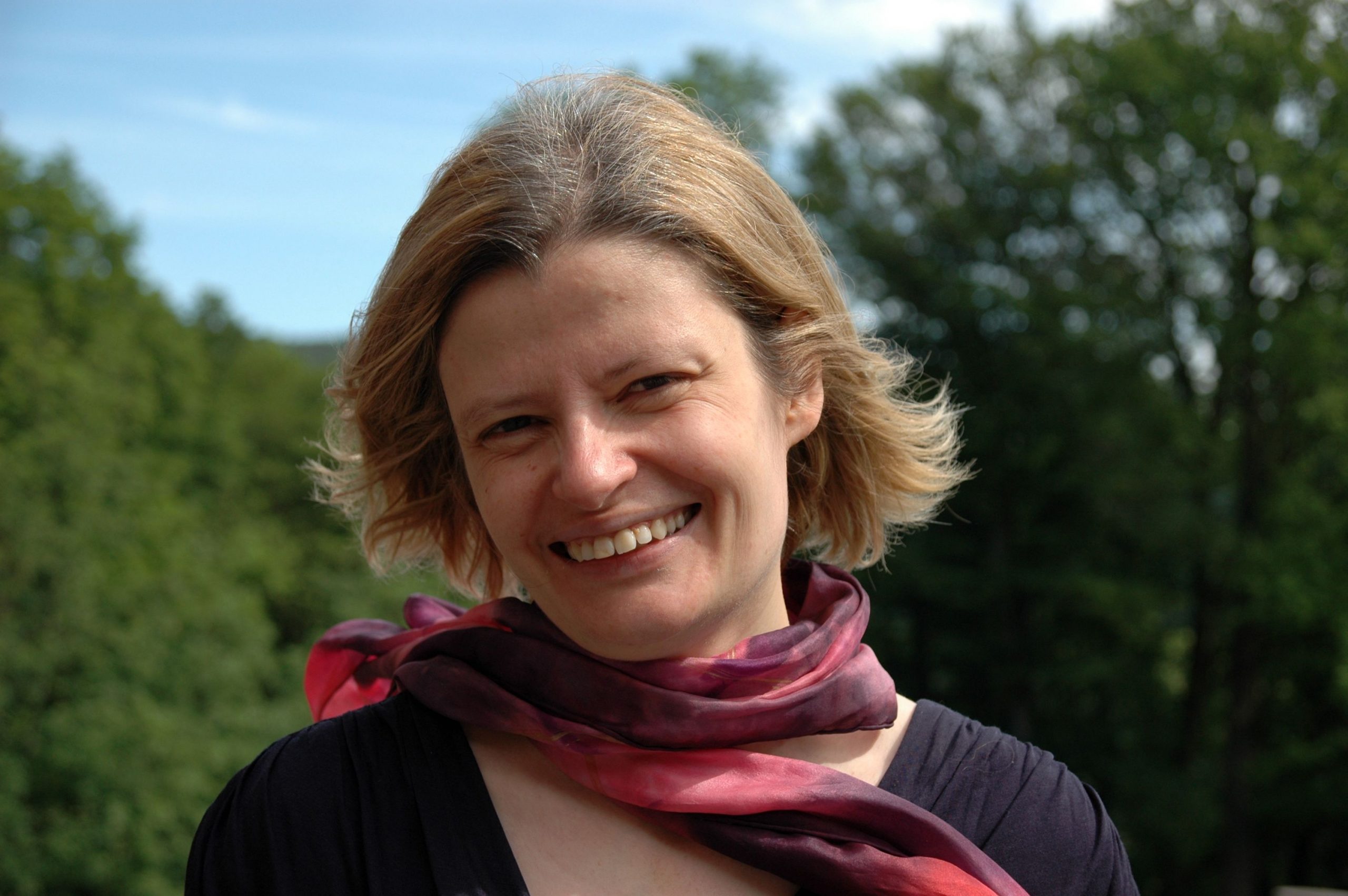Humboldt Fellow Katja Markert Doing Research at HITS

The computational linguist Dr. Katja Markert (University of Leeds) has been staying at the Heidelberg Institute for Theoretical Studies (HITS) as a visiting researcher for almost a year with a Humboldt Research Fellowship for Experienced Researchers. Her research into entities in texts benefits the automatic text summarization and information development. Her results will be presented at the international ACL conference in Jeju, South Korea.
In August 2011, computational linguist Dr. Katja Markert came to the Heidelberg Institute for Theoretical Studies (HITS) with a Humboldt Research Fellowship for Experienced Researchers for a one-year stay. Since 2003, she has been teaching at the University of Leeds, first as a “lecturer” and then as “reader” (Associate Professor). Previously, Katja Markert was doing research at the University of Edinburgh with an Emmy Noether grant. She completed her PhD in computational linguistics at the University of Freiburg in 1998 in the Graduate Programme “Human and Machine Intelligence”. Previously, she studied Mathematics with a minor in English language and literature. Her host at HITS is Prof. Michael Strube, head of the Natural Language Processing (NLP) research group.
The Humboldt Research Fellowship for Experienced Researchers gives them the opportunity to carry out a long-term research project of their choice in cooperation with an academic host of their choice at a research facility in Germany.
A key area of Katja Markert’s research is the so-called “bridging”. It is important for automatic text summarization, information development and for programs which automatically convert text into spoken language. “One of the basic questions is: How are entities, i.e. words describing things, introduced and how can we access them?” she says. An example: “A shopkeeper has been murdered. Friends were shocked by the murder. Unfortunately, such crimes are normal in Manhattan“. In this text, “friends” relates to “shopkeeper” who was introduced before. With algorithms, Katja Markert tries to create a bridge between the “old” and the “new” entity, so that the text makes sense as a whole.
Her research at HITS as a visiting scientist has had two results so far. They are described in a joint paper she published together with Michael Strube and Yufang Hou, a PhD student at HITS: an annotated corpus and an algorithm for automatic recognition of the information status of entities. “Our new method provides results that are ten per cent better than the current standard algorithm”, she says. The paper will be presented at the ACL computational linguistics conference in Jeju, South Korea this week (full title: COLLECTIVE CLASSIFICATION FOR FINE-GRAINED INFORMATION STATUS. Katja Markert, Yufang Hou and Michael Strube. ACL 2012, Jeju/Korea, Long paper).
“The combination of a relaxed atmosphere and high productivity is what I like about HITS,” she says. “I have the impression that the researchers here enjoy a high level of trust and freedom.” She plans to visit HITS again in 2013.
The Alexander von Humboldt Foundation
The Alexander von Humboldt Foundation promotes scientific collaborations between excellent international researchers and researchers from Germany. It awards fellowships and prizes, enabling international researchers to come to Germany and work on a research project of their choice together with an academic host and cooperation partner. Humboldt Fellowships promote six- to twenty-four-month stays of highly qualified researchers from abroad in Germany. Researchers from Germany can become Humboldt Fellows and conduct a research project abroad as a visiting researcher, staying with one of over 25,000 Humboldtians (alumni of the foundation) worldwide. The network of the Humboldt Foundation comprises researchers in more than 130 countries worldwide – including 48 Nobel Prize winners.
Press contact:
Dr. Peter Saueressig
Head of Communications
Heidelberg Institute for Theoretical Studies (HITS)
Phone: +49-6221-533245
Peter.saueressig@h-its.org
www.h-its.org
Twitter: @HITStudies
About HITS
HITS, the Heidelberg Institute for Theoretical Studies, was established in 2010 by physicist and SAP co-founder Klaus Tschira (1940-2015) and the Klaus Tschira Foundation as a private, non-profit research institute. HITS conducts basic research in the natural, mathematical, and computer sciences. Major research directions include complex simulations across scales, making sense of data, and enabling science via computational research. Application areas range from molecular biology to astrophysics. An essential characteristic of the Institute is interdisciplinarity, implemented in numerous cross-group and cross-disciplinary projects. The base funding of HITS is provided by the Klaus Tschira Foundation.